Fellowships
The Fellowship Year
In addition to taking classes at Harvard and MIT, Nieman Fellows participate in a broad range of activities, including seminars, shop talks, workshops, master classes and Soundings—weekly talks during which fellows take turns exploring why they do what they do as journalists.
Fellows additionally have the opportunity to take several Nieman classes designed exclusively for them, including narrative nonfiction writing taught by author Steve Almond, and Op-Ed writing class taught by Jeffrey Seglin, director of the HKS Communications Program and a senior lecturer in public policy. This past year, Lea Thau, producer and host of the podcast “Strangers,” also ran storytelling workshops with fellows in the spring and fall semesters.

Arnie Arnesen, radio show host and former politician, talks to 2020 Nieman Fellows and other guests about New Hampshire politics on Feb. 7, 2020.
In February, fellows took a trip north to observe campaigning and hear from local political experts ahead of the New Hampshire primary. They also visited with “Frontline” executive producer Raney Aronson and WGBH CEO Jon Abbott for an insider’s look at public broadcasting.
When the coronavirus pandemic forced all classes and events online in March, the Nieman Fellows quickly found new ways to stay connected virtually. The incoming 2021 Visiting Fellows, media innovators who will work on projects to advance racial justice and public health coverage, all plan to do their research remotely.
The fellows moderated many of the talks at Nieman’s Lippmann House and organized DIYs, more causal events during which they taught their classmates new skills, collaborated on projects or invited speakers for informal discussions on a variety of subjects. They also shared their expertise, speaking to Harvard classes, participating in panel discussions and mentoring student journalists at The Harvard Crimson
Several fellows hosted takeovers of Nieman’s Instagram account, sharing images of life at Harvard.
The Abrams Nieman Fellowships
For the past three years, the Abrams Nieman Fellowships for Local Investigative Journalism have offered reporters and editors from underserved areas the benefits of an academic-year fellowship, along with funding for fieldwork to develop investigative public service reporting projects at home. The Abrams Fellows are supported by a generous grant from the Abrams Foundation.
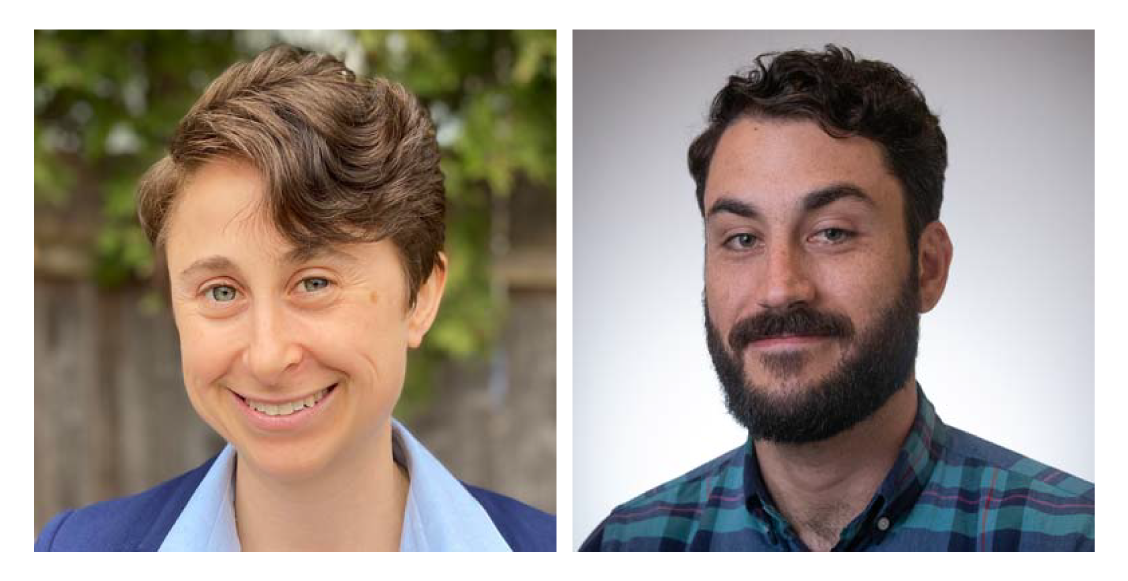
Emily Corwin, left, and Scott Dance
Two journalists were selected as Abrams Nieman Fellows in the class of 2021: Emily Corwin, an investigative reporter and editor for Vermont Public Radio, and Scott Dance, a reporter who covers the environment for The Baltimore Sun.
Our inaugural 2019 Abrams Nieman Fellows for Local investigative Journalism completed their fieldwork and published their projects in 2020:
Nathan Payne, executive editor of Michigan’s Traverse City Record-Eagle, published “Death Sentence,” a project examining in-custody deaths in Michigan’s jails. He spent much of 2019 pursuing FOIA requests in all 83 Michigan counties to reach his findings.
Benny Becker researched infrastructure in rural communities in eastern Kentucky and southern West Virginia that are struggling with the collapse of an extractive economy. His reporting, published in collaboration with Ohio Valley ReSource, WMMT FM 88.7 and Appalshop, takes a comprehensive look at the connection between safe drinking water and the legacy costs of extractive industries in Central Appalachia. His approach was to let his subjects tell their own stories.
Laura Pérez Sánchez investigated problems with recovery efforts and aid distribution in Puerto Rico following 2017’s Hurricane Maria and published her findings in Spanish in collaboration with El Centro de Periodismo Investigativo in San Juan.
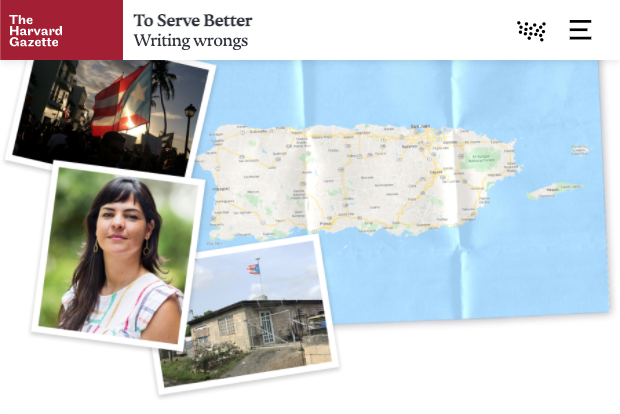
The Harvard Gazette’s “To Serve Better” series profile of Laura Pérez Sánchez
Becker and Pérez Sánchez additionally were featured in The Harvard Gazette’s “To Serve Better” series, which profiles Harvard alumni making positive contributions to their communities throughout the United States. Becker’s Abrams fieldwork features voices from Appalachia rarely heard in the press. Pérez Sánchez says “Journalism matters because power needs to be held accountable … It’s that simple.”
The Gazette series also published a profile of 2010 Nieman Fellow Gwen Thompkins, co-creator, executive producer and host of “Music Inside Out,” a radio show that documents and celebrates Louisiana music and its impact on the wider world.
Journalism Innovators
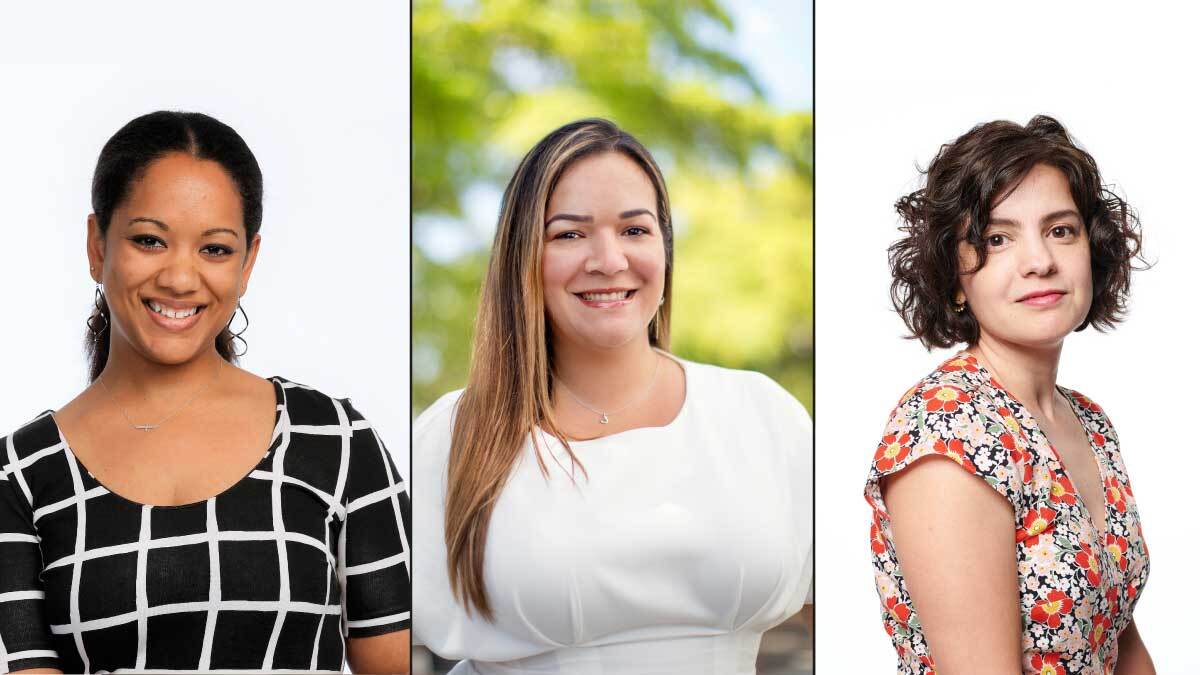
2020 Nieman Fellows Jasmine Brown, Selymar Colón, and Ana Campoy teamed up to launch Diversifying Journalism, or DiJo.
Three of our 2020 Nieman Fellows, Selymar Colón, Ana Campoy and Jasmine Brown, developed Diversifying Journalism (DiJo), a project that seeks to find, promote and listen to diverse voices, and increase representation of people of color in U.S. newsrooms. They are developing two crowdsourced databases. One will include experts on a variety of topics, so reporters on deadline can quickly find diverse sources. The other is a directory of newsroom staff that can be shared with hiring managers. Jasmine Brown, now a senior producer in the race and culture unit at ABC News’ “World News Tonight with David Muir,” was selected as one of Nieman’s 2021 Visiting Fellows to further develop the project.
Another new project comes from 2020 Visiting Fellow Tomer Ovadia, a software engineer at Google, who created “Original Reporting,” a podcast examining the creation and business of journalism. He talks to Nieman alumni and industry experts about one of the biggest problems facing the news industry: a model to fund original reporting.
Engagement at Harvard and Beyond
The Nieman Class of 2020
Selymar Colón, most recently vice president and editor-in-chief of digital news at Univision, spoke with Cristela Guerra, Paloma Duong and Beya Jimenez on a media and communications panel at the Harvard Latina Empowerment and Development Conference.
2020 Niemans Natalia Guerrero, Oliver Roeder and Alexander Trowbridge discussed their careers and work during a seminar at The Harvard Crimson. In a separate session, Carrie Johnson, Ana Campoy, Matthew Dolan and Lucy Hornby also spoke to student journalists at the Crimson about their reporting.
In June, Guerrero, a New York-based Colombian journalist and regular contributor to the BBC, interviewed Dr. Annette Idler, author of “Borderland Battles: Violence, Crime, and Governance at the Edges of Colombia’s War.”
Gülsin Harman, a freelance reporter at The New York Times Istanbul bureau, was selected as a member of the 2020 Assembly Fellows cohort for the Assembly: Disinformation program at Harvard’s Berkman Klein Center. This year’s program looked at disinformation in the digital public sphere from a cybersecurity perspective.
Lucy Hornby, most recently deputy bureau chief in Beijing for the Financial Times and currently an associate in research at Harvard’s Fairbanks Center, gave a number of talks in the spring including “China’s Belt and Road: A New Colonialism?” sponsored by Harvard Kennedy School’s Ash Center; “Triangular Economic Relations: China, the EU and the United States,” a panel at Harvard Kennedy School’s Belfer Center; and “China’s New Silk Road: Promise or Peril?” annual world affairs panel discussion co-sponsored by the Harvard and Brown University clubs of Rhode Island.
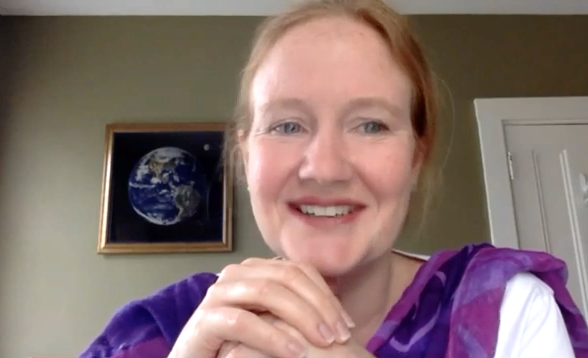
Lucy Hornby speaking virtually to Dartmouth students and community members at the Rockefeller Center’s fifth Rocky Watch event.
In May, Hornby also presented “The China Challenge,” the 2020 Bernard D Nossiter Lecture at Dartmouth College’s Nelson A. Rockefeller Center; in June, she spoke on the “U.S. Foreign Policy and China” panel at the John F. Kennedy Presidential Library; and in July, she spoke about “After the Coronavirus: China and the U.S.” at the University of Southern California’s U.S.-China Institute. She additionally has been a guest lecturer for classes at Harvard, the University of Alabama, and Chapman University.
Carrie Johnson, Jasmine Brown and Todd Wallack spoke with Harvard undergrad students about career path opportunities at the Office of Career Services.
Johnson, the national justice correspondent at NPR, also spoke to the Harvard College in Asia program; talked to a Harvard Law School class about presidential power taught by former Obama White House counsel Neil Eggleston; discussed journalism in 2020 with Harvard alumni of the Academic Exchange program at the Harvard Faculty Club; did a Zoom webinar for the National Association of Criminal Defense Lawyers on reporter interactions with lawyers in big cases; and spoke during another Zoom webinar for the American Bar Association on threats to judicial independence.
In October, Johnson moderated “Leading in the Midst of Polarized Times,” the inaugural event of the Harvard Community Dialogues Series, which featured a conversation with former Massachusetts Gov. Deval Patrick and a panel discussion with Harvard professors and the president of the Harvard Black Graduate Student Alliance.
The Nieman Class of 2021
In October, 2021 Bukola Adebayo, a senior producer for CNN Digital in Lagos, Nigeria, Willoughby Mariano, an investigative reporter for The Atlanta Journal-Constitution, and Nieman affiliate Rayner Ramirez, founder and executive director of Tilt Shift Media, spoke on a Journalism Pathways panel, sponsored by the office of Career Services. They discussed their careers in journalism, their experiences telling the stories of marginalized groups and shared thoughts on diversity and inclusion in the industry.
Alissa J. Rubin, Robert Frederick, Vidya Krishnan, Yasmin Amer and Willoughby Mariano spoke about journalism during the time of COVID-19 at the Harvard Crimson’s fall journalism conference.
Marc-Olivier Bherer, a staff editor and reporter for the Ideas-Debates section of the French daily Le Monde, spoke to the students at Harvard’s Pforzheimer House about “Democratic Winter: A French perspective on the U.S. Presidential Election.”
Contributions to Nieman Reports by 2020-2021 Fellows
Adding Diverse Perspectives to Newsroom Discussions
With their Diversifying Journalism project, 2020 Nieman Fellows Ana Campoy, Jasmine Brown, and Selymar Colón are building databases of journalists and experts of color.
By Ana Campoy, NF ’20, deputy economics and finance editor at Quartz
Photographing Grief during the Covid-19 Pandemic
By Lisa Krantz, NF ’20, a photojournalist with the San Antonio Express-News
How to Cover Climate Change like We’re Covering the Coronavirus
Lessons from coronavirus coverage for the next health crisis story—climate change
By Robert Chaney, NF ’20, interim city editor of the Missoulian who covers the outdoors, environment and science
On the Outside Looking In: China Expels American Journalists
A diminished foreign press corps means less visibility for the rest of the world
By Lucy Hornby, NF ’20, most recently deputy bureau chief in Beijing for the Financial Times, now on leave and an associate in research at Harvard’s Fairbanks Center
Providing Better Narratives About Africa For—and by—Africans
Hannane Ferdjani launched her program “Beyond the Noise” to report on the pandemic’s impact on Africa.
By Hannane Ferdjani, NF ’20, creator and host of “Beyond the Noise”
Soundings
Throughout the academic year, Nieman Fellows take turns explaining why and how they do their work as journalists. Some highlights from 2020:
Following the Money at the University of Michigan Hits Home for Reporter
Why this journalist’s investigation tested — and enriched — his marriage
By Matthew Dolan, NF ’20
Reimagining Latinx Representation in American Journalism
Newsrooms need to find journalists who represent the communities on which they report
By Selymar Colón, NF ’20
“Privilege the voices”: NPR’s Carrie Johnson on the power of active listening
Active listening is a powerful way to come together, even as the coronavirus keeps us apart
By Carrie Johnson, NF ’20
What Could Trauma-Informed Journalism Look Like?
Seeking ways to inform, not overwhelm, readers
By Anne Godlasky, NF ’20
Beyond Superheroes Vs. Villains
Journalists must play a role in bridging the divides in our political discourse
By Austin Bogues, NF ’21
Nieman Visiting Fellows
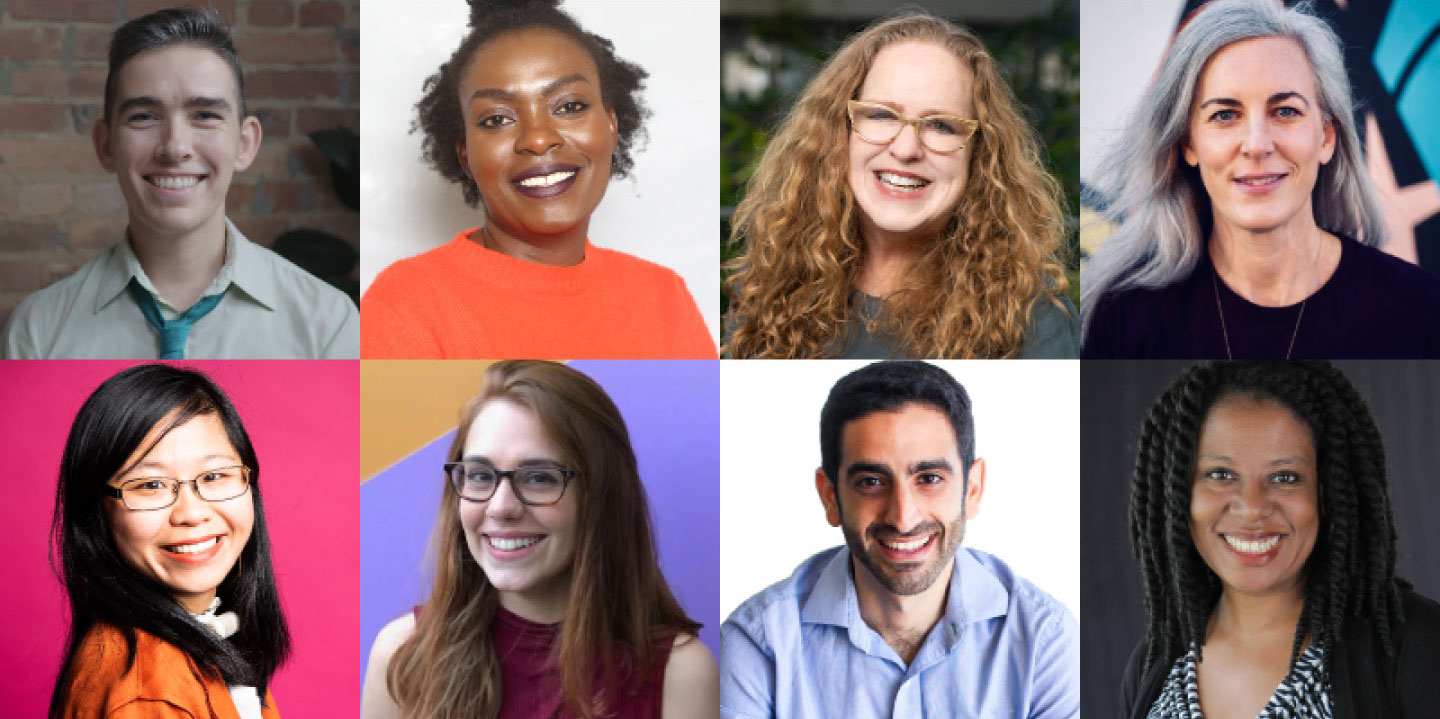
Nieman Foundation's 2020 Knight Visiting Nieman Fellows: (top row) Lewis Raven Wallace, Mercy Adhiambo, Amy Silverman, Elizabeth Toohey, (bottom row) Wendy Lu, Nicole Barton, Tomer Ovadia and Erika Dilday.
The 2020 Knight Visiting Nieman Fellows
The Nieman Foundation for Journalism at Harvard selected a group of eight media innovators as the 2020 Knight Visiting Nieman Fellows. The group includes a features writer, an editor/producer, an audience development associate, the executive director of a media group, two freelance journalists, a software engineer and an English professor.
Mercy Adhiambo, a features writer at The Standard in Kenya, will study innovative storytelling and best practices for investigative and in-depth reporting on children in vulnerable circumstances.
@mercyorengo
Nicole Barton, an audience development associate at KQED in San Francisco, will research how children ages 5 to 7 consume information and how local public media can build news products to serve and develop that audience.
@nicolejbe
Erika Dilday, executive director of The Futuro Media Group, will develop a plan to scale and sustain local community media labs, which help marginalized audiences tell their own stories authentically and shape the broader narrative around issues of race and class.
@dildaydoc
Wendy Lu, an editor and producer for HuffPost, will examine the state of disability reporting and representation in the media. She will develop a curriculum of professional reporting workshops designed to educate reporters on how to cover disability issues and train newsrooms to be more inclusive of disabled journalists, both in hiring and in overall workplace culture.
@wendyluwrites
Tomer Ovadia, a software engineer at Google, will research ways platforms like Google and Facebook can better identify and promote high-quality, original reporting and improve incentives for original content in the news ecosystem.
@tomerovadia
Amy Silverman, a freelance journalist and advisory board member of the National Center on Disability and Journalism, will create a comprehensive guide for reporters, media outlets and journalism schools to better cover people with intellectual disabilities. Silverman is the recipient of a 2020 ProPublica Local Reporting Network grant for a series she will produce this year with the Arizona Daily Star in Tucson.
@amysilvermanaz
Elizabeth Toohey, assistant professor of English at Queensborough Community College, City University of New York, will develop an immersive journalism curriculum model for community colleges. Her work is part of a larger project to redesign college composition courses by basing them in media literacy.
@elizabethtoohey
Lewis Raven Wallace, a freelance journalist and co-founder and national program director of Press On, will research historical and current examples of movement journalism. Press On is a Southern collective for movement journalism, which focuses on liberation and racial justice issues.
@lewispants
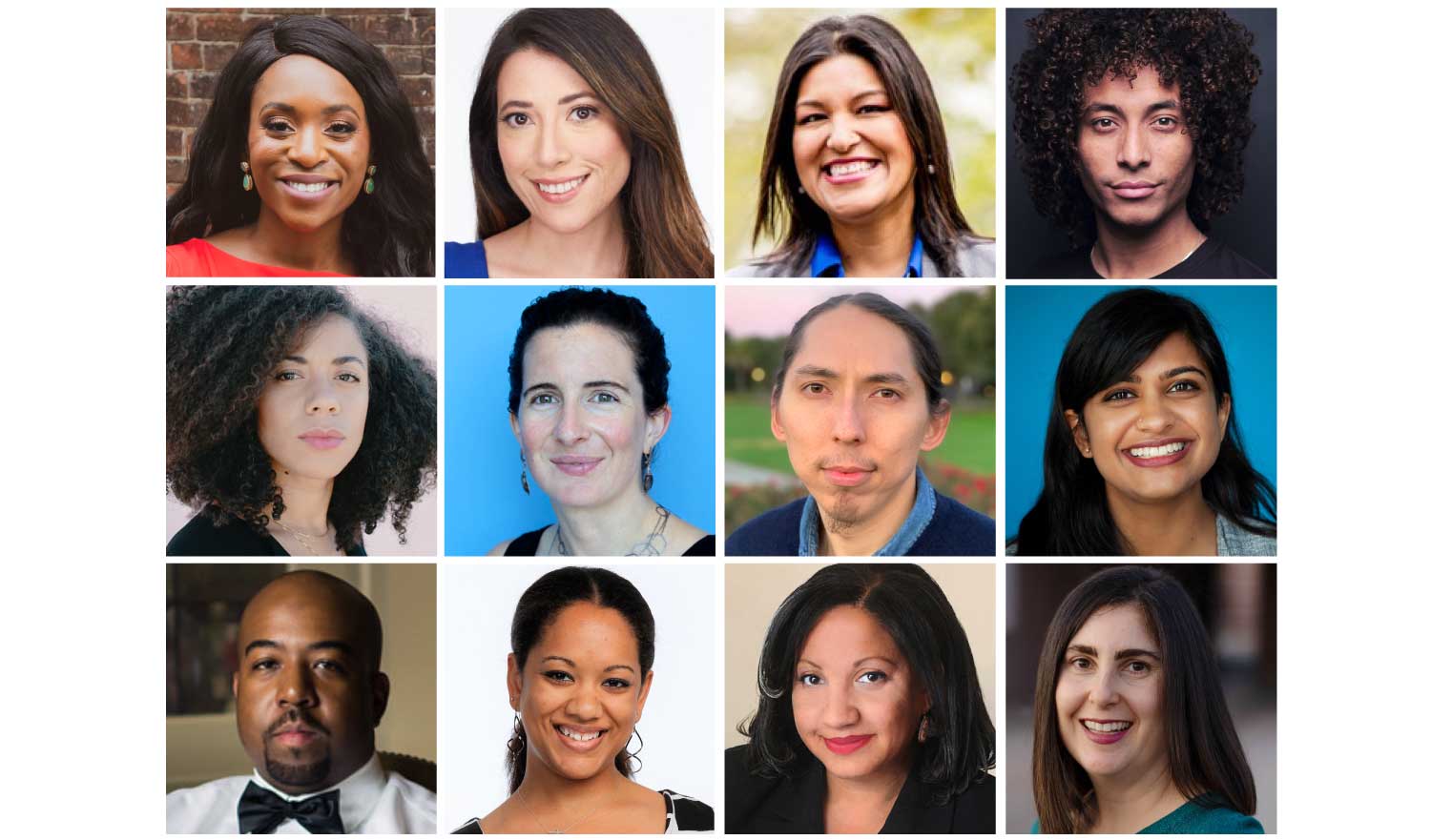
Nieman Foundation's 2021 Visiting Nieman Fellows: (top row) Tamara Best, Janet Alvarez, S. Mitra Kalita, Jonathan Rabb, (middle row) Bethany Mollenkof, Alice Goldfarb, Kyle Edwards, Anjuli Sastry, (bottom row) Aaron Eaton, Jasmine Brown, Sarah Glover and Valeria Fernández
The 2021 Nieman Visiting Fellows
The 2021 Nieman Visiting Fellows represent a broad range of communities and media outlets. They will each spend time in the coming year working remotely, using resources at Nieman and Harvard University to develop projects advancing racial justice or improving public health journalism in the U.S.
Janet Alvarez, deputy business editor of The Philadelphia Inquirer and a television contributor for CNBC and Telemundo, will develop widespread COVID-19 vaccination education initiatives to inform people of color when vaccines are distributed. The goal is to assist vulnerable populations, especially the undocumented, who may be reluctant or find it difficult to be vaccinated.
@janetonthemoney
Tamara Best, a member of the news team at Facebook, will research how a centralized hub within a social media platform can be utilized to amplify the stories of an underrepresented community and create avenues for civic engagement to advance racial justice.
@_tamarabest
Jasmine Brown, a senior producer in the race and culture unit at ABC News’ “World News Tonight with David Muir,” will work to expand and amplify the voices of people of color in U.S. newsrooms by developing two crowd-sourced databases for Diversifying Journalism. Brown created the project together with her 2020 Nieman Fellow colleagues Ana Campoy, deputy economics editor at Quartz, and Selymar Colón, president and editor-in-chief of Frame ONE Strategies and former news executive at Univision News. Their first database will include experts on a variety of topics that will help reporters on deadline quickly find diverse sources. The second is a directory of newsroom staff that can be shared with hiring managers.
@JasmineLBrown (with partners @ana_campoy_ and @SelyColon)
Aaron Eaton, a digital coordinator and video producer at The Philadelphia Tribune, will study and report on the impact that virtual learning has on low-income students with limited or no access to resources in the School District of Philadelphia.
@_AaronEaton
Kyle Edwards, managing editor for Native News Online, will examine, catalog and memorialize the loss of Indigenous elders, knowledge and culture during the COVID-19 pandemic by creating a website devoted to sharing oral histories and interviews with families affected by the disease. This will inform a podcast series focused on individual stories of Indigenous resilience in the face of the COVID-19 surge.
@kylejeddie
Valeria Fernández, an independent investigative journalist, will work with journalist Maritza L. Félix to co-create a Spanish-language podcast and outreach project (“Comadres al Aire”/“Comadres on the Air”) that will address women’s health issues (including those of queer, trans and non-binary people) in Latinx immigrant communities in the U.S. The initiative will tackle the health inequalities that have become increasingly evident during the COVID-19 pandemic and will reach those who don’t have internet access or can’t read.
@valfernandez
Sarah Glover, manager of social media strategy for NBC Owned Television Stations, will create SPARK, an open-source project that will develop actionable diversity, equity and inclusion proposals for the journalism industry. She plans to publish a series of articles to provide news leaders with business strategies that focus on dismantling bias and promote inclusive news content. She additionally will present workforce solutions and training initiatives.
@sarah4nabj
Alice Goldfarb, who leads the COVID Racial Data Tracker or The COVID Tracking Project at The Atlantic, will research and develop guidance for analyzing and reporting on demographic data about public health, with a focus on COVID-19 race and ethnicity data.
@afgoldfarb
S. Mitra Kalita, founder and publisher of several niche newsletters, including Epicenter-NYC, which was created to help New Yorkers get through the COVID-19 pandemic, will work with Black and Brown community media to create a content-sharing and revenue-generating network. The initiative will help journalists of color work together to amplify their stories, both via each other and social platforms, and syndicate them to mainstream media outlets.
@mitrakalita
Bethany Mollenkof, a photographer and filmmaker, will create a photo series documenting the toll COVID-19 is taking on Black life in the rural South, where Black people are contracting the virus at a higher rate and dying from it more often than others elsewhere. The work will examine how the coronavirus is affecting people’s mental health and fundamentally changing communities.
@FancyBethany (Instagram)
Jonathan Rabb, CEO/founder of Watch The Yard, a digital platform for Black college students and alumni, will examine the ways in which minority-owned news outlets are affected by loss of ad revenue due to the COVID-19 pandemic. He will explore new revenue models that these platforms can implement to continue essential journalism by, about and for underrepresented communities.
@jonathanrabb
Anjuli Sastry, an audio producer for the NPR podcast and national radio show “It’s Been a Minute with Sam Sanders,” will craft a two-pronged approach to increase diversity within public radio. On air, she will launch a new audio project to elevate voices of color across NPR radio shows, podcasts and visual platforms. Behind the scenes, Sastry will create a model for mentorship programs that foster retention and support employees of color throughout public radio.
@AnjuliSastry
